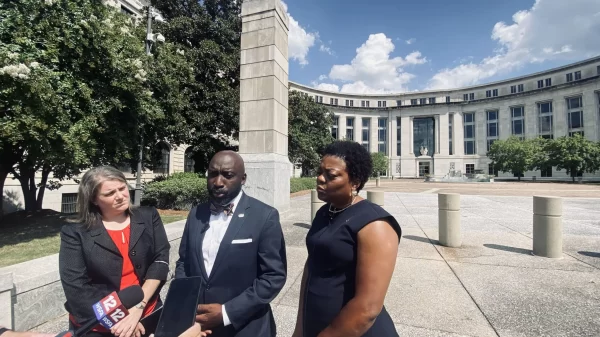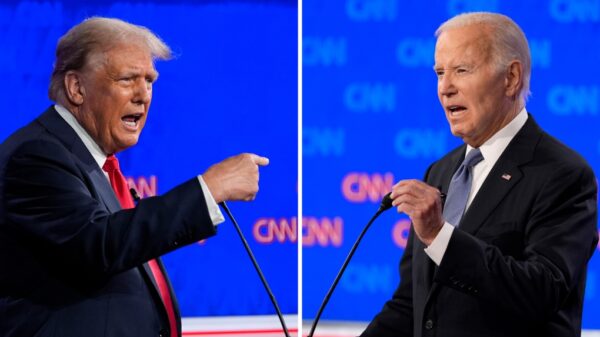By Bill Britt
Alabama Political Reporter
The fall of Governor Robert Bentley was a long time in the making, but the negotiations that led to his criminal plea bargain and resignation from office were direct and swift.
Beginning in earnest last Sunday, and into the wee hours of Monday morning, Bentley’s attorneys, Chuck Maloney and Cooper Shattuck, hammered out an agreement with Special Prosecutor Ellen Brooks (former Montgomery County District Attorney) and Matt Hart, Chief of the Attorney General’s Special Prosecutions Division. Bentley pleaded to two misdemeanor charges and resigned his office to avoid a lengthy and expensive criminal felony trial.
Between his unapologetic “sermon-style” press conference on Friday morning, in which he swore not to resign stating he had done nothing wrong, and Sunday, when the deal making began, a culmination of events persuaded Bentley to go all-in. One person with knowledge of the facts agreed it was a high-stakes game of poker, with Brooks and Hart as master players, and Bentley, Maloney, and Shattuck as serious amateurs.
By the time Top-gun attorney Bill Athanas became aware of the deal, it was too late to pull Bentley out of the agreement (according to witnesses who wish to remain anonymous). Athanas want to fight on. But it may have been a call between former colleagues Hart and Athanas that set the whole process in motion.
Events leading to Bentley’s resignation
On Wednesday, April 5, the State Ethics Commission found probable cause that Bentley violated three provisions of the Fair Campaign Practice Act (FCPA) and one violation of the State Ethics Code, each of which is a Class B Felony. They referred the case to Montgomery County District Attorney Darryl Bailey.
During the nine-hour proceeding, Commissioner Butch Ellis and Judge Charles Price, both Bentley appointees, conducted a significant portion of the questioning of witnesses. Ellis, after aggressively questioning witnesses and hearing all of the testimony, abstained from the vote, which found probable cause to accuse Bentley of wrongdoing. Judge Price was said to have also forcefully interrogated the witnesses who appeared before the commission. According to some of those present, it was Ellis and Price who pushed to have the matter referred to District Attorney Bailey and not Special Prosecutor Brooks who was already conducting his own investigation of the Governor.
Insiders believe Ellis and Price steered the investigation to Bailey so as to slow down the legal process that would follow the Commission’s vote. But, that plan failed as Bailey immediately transferred the case to Brooks and the Attorney General’s Special Prosecutions Division.
After the case was moved, Bentley’s lawyer Athanas reportedly called Hart to see if the State would pursue a felony criminal case against the Governor. Those close to the Governor thought Hart had a weak case and would not seek a felony conviction. But, according to those with knowledge of the events, Hart assured Athanas that the State would seek a felony conviction. Hart’s assertion rattled Bentley, and his advisors.
With the Ethics Commission’s conclusions and facing the release of the House impeachment report, Bentley remained defiant but shaken.
On Monday, the finding of the House Judiciary’s legal council, Jack Sharman was scheduled to be released. After his hastily called press conference on Friday, Bentley’s legal team filed a motion for a temporary restraining order in Montgomery County which landed in the court of Judge Roman Shaul, another Bentley appointee.
After several hours of arguments from attorneys for the House Committee and Bentley, Judge Shaul called for a lunch recess but never returned. Instead, Montgomery Circuit Judge Greg Griffin took the case saying Shaul had recused himself. Judge Griffin then granted Bentley’s request ordering a temporary restraining order giving the Governor 10 days to respond to the report before impeachment hearings could begin. But even before Judge Griffin issued his ruling, the Judiciary Committee released the Sharman report, which contained damaging testimony and exhibits with further illuminated reports that were published by The Alabama Political Reporter over the last year.
The House Judiciary Committee then filed for immediate relief from the State Supreme Court which overturned the lower court ruling.
After failing to secure a legal restraining order against the release of the committee’s report, the steady stream of news stories about Bentley’s thuggery, juvenile “love” texts between he and Rebekah Caldwell Mason, began to take its toll on the 74-year-old Bentley. All of this accompanied by calls for his resignation by a growing number of Republican leaders began to convince the beleaguered Governor that it was the beginning of the end according to those around him at the time.
According to witnesses, the most poignant call for him to step down was a visit by House Speaker Mac McCutcheon. Face to face; McCutcheon told Bentley the hard truth: it was time to go. Along with calls from Senate President Pro Tem Del Marsh and assurances from House Impeachment Committee Chair Mike Jones, that the proceeding would move swiftly against Bentley on Monday, the rapid unfolding of events pushed the weary Governor over the edge.
Negotiations which began in earnest on Sunday continued until approximately 3:00 AM Monday morning. Having completed the plea agreement, the players retired. But by Dawn, Bentley was having second thoughts and wanted more time to put his house in order before resigning. Until Bentley was arrested, booked and stood before Judge Massey, it was not clear if he would call it quits on Monday or not. But finally he caved.
A detail that had escaped all parties was the fact that according to State Law, when a Governor resigns office he or she must do so with a letter of resignation to the Lt. Governor. During the final hour before Bentley’s departure, a team dispatched from the Special Prosecutor made the trek to the Lt. Governor’s office on the second floor of the Capital to present Bentley’s letter of resignation to Lt. Governor Kay Ivey. According to those present, the room was full when the Special Prosecutor’s team arrived. Lt. Governor Ivey stood ramrod straight as she was handed Bentley’s letter of resignation and barely spoke after signing the document that sealed Bentley’s fate.
After Bentley had given his speech, which sounded more like, farewell, I’m off to bigger and better things than an apology and resignation, Lt. Governor Kay Ivey, in a somber and dignified ceremony became the 54th Governor of Alabama, promising to restore the State’s reputation and the dignity of the Governor’s Office.
Bentley Chief Legal Counsel David Byrne also played a role in the proceedings.






















































